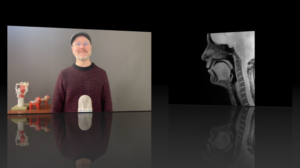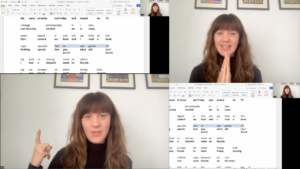The problem with ‘här’ and ‘hit’
When you start learning Swedish, you soon learn the word for here: här.
Jag bor här. I live here.
But then, after a while, you may notice that Swedes never say Kom här! for Come here! Instead, we say Kom hit! Why on earth do we not say här!?
The word here is an adverb. In Swedish, we have some adverbs that will differ slightly if they are in the context of a location or a direction.
Här and hit both mean here, but här indicates a location and hit indicates a direction. Likewise, där and dit both mean there, but där indicates a location and dit indicates a direction.
How to know if it’s location (här) or direction (hit)
The form used depends on what verb is used with it. We have some verbs that indicate location, and some that indicate direction. Therefore, if you know which ones these are, you can easily tell if you should use for example här or hit.
Here are some common verbs that indicate location:
är am/are/is
bor live
sover sleep
jobbar work
studerar study
ligger lie
sitter sit
står stand
parkerar park
As you can see from this list, there is not a lot of movement going on here. They are all still, so to speak, in one place. This is because they indicate a location. With any of these verbs, you would therefore use här and där (and not hit or dit). For example:
Jag arbetar här. I work here. Micke bor där. Micke lives there.
Here are some verbs that indicate direction:
åker/reser travel
flyger fly
kör drive
cyklar cycle
kommer come
går go, walk
hittar find your way
Because these verbs indicate direction, you need to use hit and dit. For example:
Lars flyger hit. Lars flies here. Hon cyklar dit. She is cycling there.
And of course, this applies to all forms of the verbs (present, past, infinitive and so on).
Practice
Now that you know the difference between location and direction, based on the verbs, can you fill in the correct adverbs into these 3 sentences?
1 (hem, hemma)
a Jag jobbar ______ den här veckan.
b Vilken tid kommer du ______?
2 (hit, här)
a Jag älskar den här restaurangen, vi går ______ nästa helg också!
b Jag är _______. Var är du?
3 (dit, där)
a Jag var på Skansen i helgen. Har du varit _______?
b Lisa: Hur åker ni till Arlanda flygplats? Anna: Vi tar nog bussen _______.






